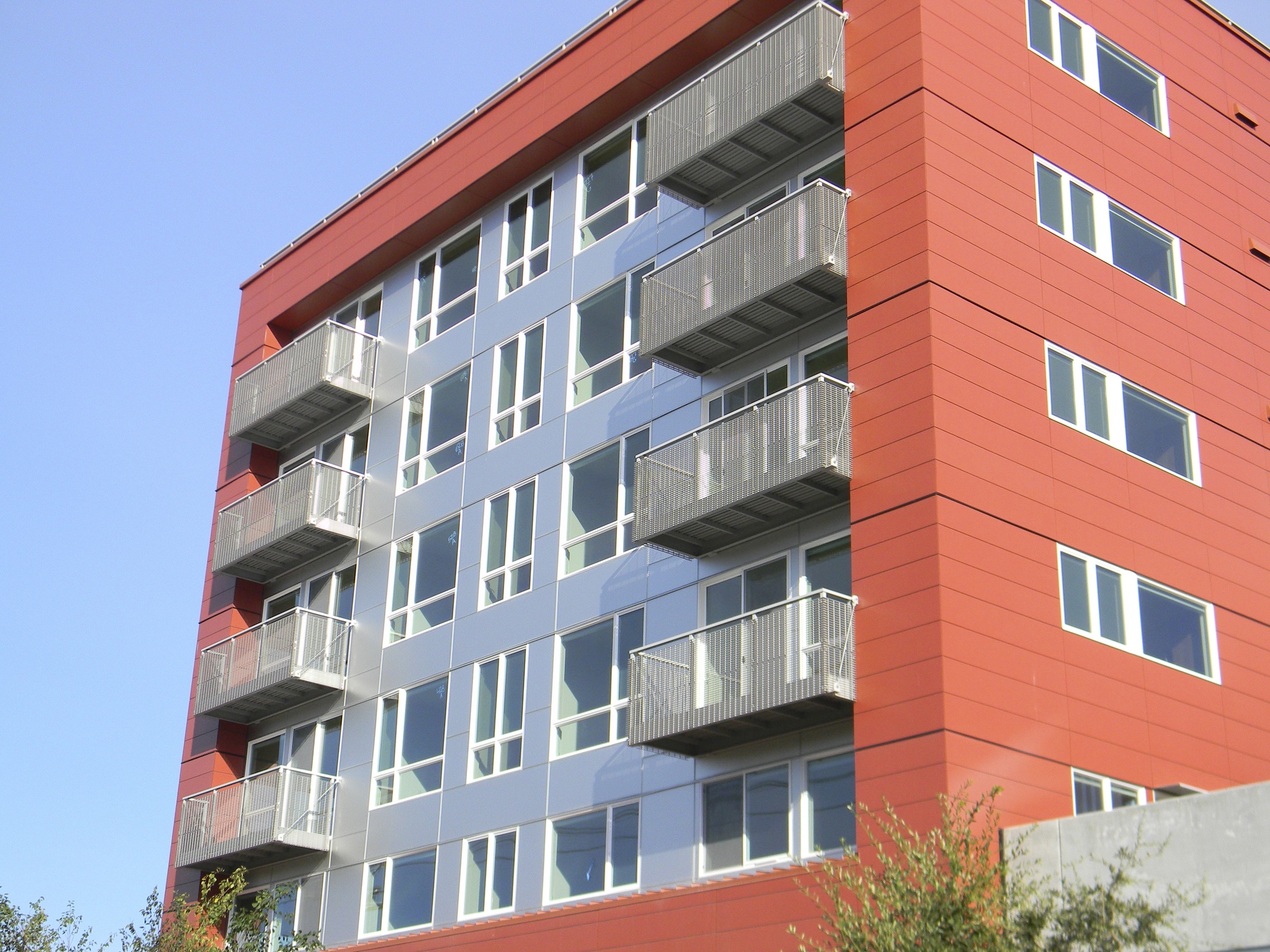MARYSVILLE – The light bulb moment came during the “leaky condo crisis” a decade ago when Norman Singfield, president of Skyline Engineered Systems in Marysville, had a hunch that a major change was ahead that would transform his industry.
The then owner of Skyline Decking, housed in an old fire station at Warm Beach, noticed the company’s contracts to rehabilitate rotten decking on large multi-story residential projects was drying up. Singfield said the crisis involved multi-billion dollar leakage lawsuits where decking and other attachments on the sides of condos were rotting away, damaging building exteriors and interiors.
Wood was the worst material, but rusting steel and concrete decks weren’t holding up well long-term, either. When he saw developers moving to more lightweight and weather-resistant – albeit costlier – decking materials such as aluminum, Singfield adapted quickly.
But he didn’t stop at installing them. He decided to make and supply them, too. “Believe it or not, modular decking is a huge market,” Singfield said.
Three years ago, the company moved into a new industrial building near Smokey Point Boulevard and 136th Street NE, fabricating and installing bolt-on modular decks, canopies, railings and custom architectural assemblies.
The company has a smaller powder coating facility just around the block, used to color their products to the customer’s design and architectural specifications. The facility doubled for a few years as the main fabrication building until they outgrew it, Singfield said.
Skyline’s strength is its one-stop shopping and vertical integration, unlike similar manufacturers.
“We can do the whole job,” Singfield said. “Design, engineering, fabrication, coordination with the architect or builder and installation.” He said the company prides itself on not abusing the client’s design intent. “We bid what the architect wanted, and we try to make it work. We creatively adapt.”
Examples of their projects include decks and privacy panels at Broadstone Koi apartments, a custom access gate at The Lyric, and patio guards and canopies at the Joule Apartments in Seattle. They also have several design projects under way, including the 353-unit Venn Apartments in Bellevue, which includes bolt-on decks, railings, cable railing, trellises, louvre screens and a dog run.
The company is also bidding on several more residential and commercial high-rises, now that scarcity of land in compact urban areas has made projects vertical and condensed, Singfield said.
Aluminum decking is a trend that is custom-made for the way tech-savvy millennials are choosing to live in IT-centric places like Seattle, Portland and San Jose, Calif., based on Singfield’s market analysis.
“These cities have lots of very young, bright, hardworking people,” Singfield said. “They’re perfectly happy to rent high-rise apartments with panoramic views in trendy business districts, with stores, nightlife and restaurants within a walk away, and everyday adult amenities on the roof and in the building. The younger people love it. They don’t need a car, but they do want access to mass transit.”
Added bonus for the young generation – aluminum’s thermal conduction make it a cool decking option that they can walk on in their bare feet in summer heat, plus aluminum is non-toxic and hypoallergenic, and it looks good.
Singfield created a second company called Skyline Engineered Aluminum to fabricate and supply modular aluminum decking and railing materials in other parts of the country and provides installation training. His Skyline Group of companies, including Skyline Engineered Aluminum, has 100 employees in Washington, Oregon and California. He believes that the new aluminum company could add up to 20 people in the first year of operation.
Singfield said there is “tons of room for expansion” in the U.S., where their engineered aluminum decks and other products would suit the weather – from harshest conditions to humid, housing and demographics in those markets. “Utah, and the Heartland are big, and back east is huge with wrought iron, not to mention the Atlantic seaboard and deep South.”
Skyline hosted a visit from 2nd District Congressman Rick Larsen in mid-December. Larsen toured the company that became successful in part due to the federal Small Business Administration’s Certified Development Company/504 Loan Program. The loan program helped Singfield finance his Marysville building and Stanwood facility before that. Larsen said that innovation takes many forms.
“Here is a company that uses an everyday material (like aluminum), not to create something new, but using that same material that has always been there to make something better. There’s a lesson to be learned here,” he said.



